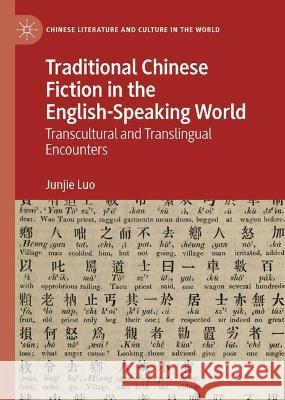Traditional Chinese Fiction in the English-Speaking World: Transcultural and Translingual Encounters » książka
topmenu
Traditional Chinese Fiction in the English-Speaking World: Transcultural and Translingual Encounters
ISBN-13: 9783031056857 / Angielski / Twarda / 2022 / 205 str.
Traditional Chinese Fiction in the English-Speaking World: Transcultural and Translingual Encounters
ISBN-13: 9783031056857 / Angielski / Twarda / 2022 / 205 str.
cena 442,79
(netto: 421,70 VAT: 5%)
Najniższa cena z 30 dni: 424,07
(netto: 421,70 VAT: 5%)
Najniższa cena z 30 dni: 424,07
Termin realizacji zamówienia:
ok. 16-18 dni roboczych.
ok. 16-18 dni roboczych.
Darmowa dostawa!
Kategorie:
Kategorie BISAC:
Wydawca:
Springer International Publishing AG
Seria wydawnicza:
Język:
Angielski
ISBN-13:
9783031056857
Rok wydania:
2022
Ilość stron:
205
Wymiary:
21.0 x 14.8
Oprawa:
Twarda
Dodatkowe informacje:
Wydanie ilustrowane











